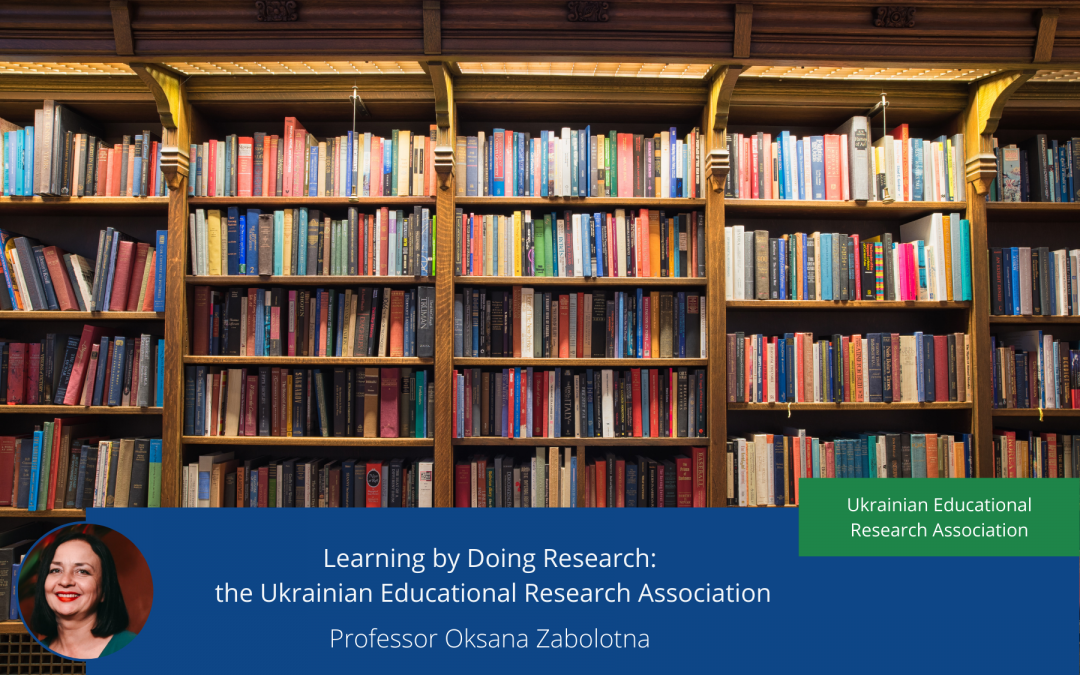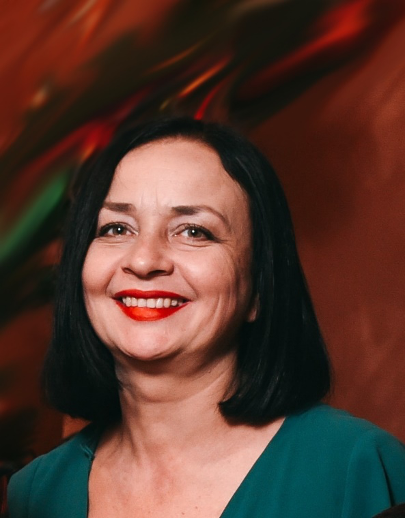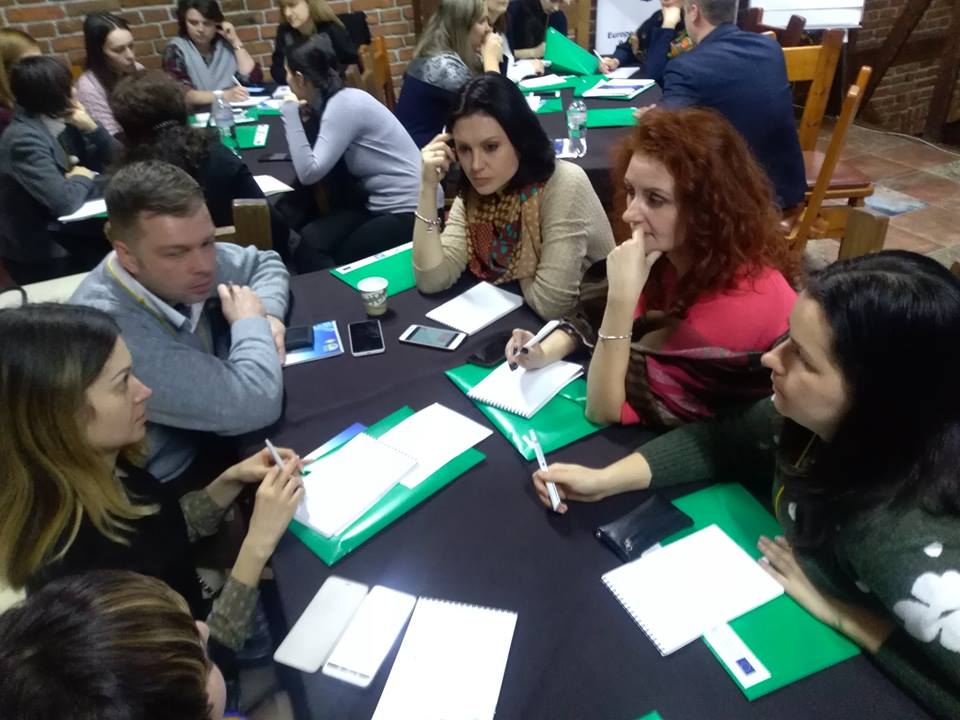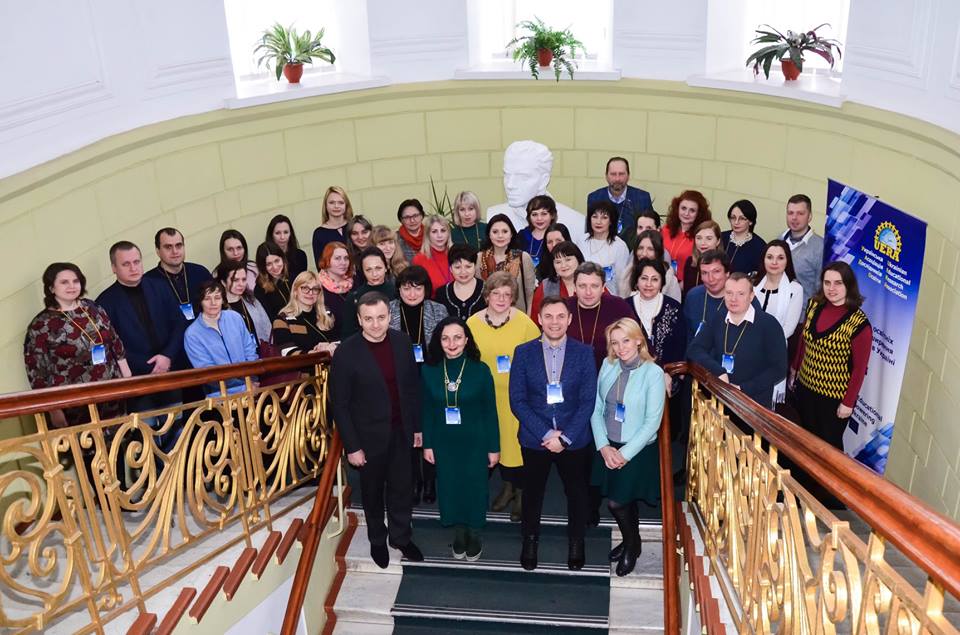
Learning by Doing Research: the Ukrainian Educational Research Association
Maintaining reliable contacts, networking, and sharing ideas are some of the best ways to empower educators. And professional and research associations help educators achieve these goals.
The Ukrainian Educational Research Association (UERA) was created five years ago to boost interdisciplinary research synergy in the field of education.
Freeing Educational Research from dusty bookshelves
Historically, educational research in Ukraine was purely in the domain of Pedagogy which in Ukraine is a discipline dealing with history and theory of education, including its forms and methods.
A quick search of the National Library of Ukraine database shows that 2729 candidate dissertations (Ph.D. research papers) in Pedagogics were defended in Ukraine in 2013-2015. Not bad for a country with a population of 42.76 mln (Eurostat, 2015)! However, despite the rapidly growing quantity of dissertations, pedagogical research in Ukraine had not gained the respect or trust of the research community or the broader public. Moreover, all the findings and recommendations were overlooked and neglected as if they had been created more for the ‘dusty bookshelves’ than for any policy impact. These findings tended to benefit the researcher but rarely reached as far as the classroom. There was even a saying: ‘Pedagogics is not a science; pedagogical research is not a research’.
One of the reasons for that was that in Ukraine, a monodisciplinary approach had always dominated in educational research. Pedagogues, politicians, sociologists, economists, and school teachers did not come together to gain insights into the field that gives the life start to each person. So for the Ukrainian Educational Research Association, bringing together researchers from various disciplines to work to make research evidence-based and school practice applicable was a real challenge. Moreover, over the years, it became clear that the real challenge is not gathering people under the UERA umbrella, but in keeping the members together in a vibrant association.
UERA’s Mission
UERA’s mission deals with:
- the development of educational researchers’ competence
- raising the quality of educational research to influence the educational system and society
- defending the rights and freedoms of its members
- meeting the professional, scientific, social, and cultural interests of its members
The best way to realise this mission, as we see it, is to help the UERA members learn by doing high-quality research in a team of people united by a project.
This idea inspired us to submit the project “European Quality of Educational Research for Empowering Educators in Ukraine” for funding from Erasmus+ Jean Monnet Support to Association.
Project Proposal and Objectives
As a part of the European Educational Research Association, UERA aimed with this project to promote European Educational Research Quality Indicators (defined in the FP 7 collaborative project coordinated by Prof. Dr Ingrid Gogolin and Dr Diann Pelz-Rusch, University of Hamburg, Department of Comparative and Multicultural Education)
The project objectives were to:
· foster the dialogue between the academic world and policy-makers in the field of education
· promote innovation in research through cross-sectoral and multi-disciplinary studies, as well as networking with other institutions
· promote excellence in research in EU educational issues
· equip young professionals with knowledge of European Educational Research Quality Indicators relevant for their academic and professional lives
· foster the engagement of young academics in teaching and research on European subjects.
Project Scope and Results
The 3-year project has come to an end, and we can now say that it has proved to be of great importance for the UERA community.
We conducted three Winter Schools for emerging researchers. Each year about 30 participants were taught about the European Educational Research Quality Indicators, and have learned the methodology of conducting Teaching and Learning International Survey.
Train the Trainer courses have helped the Winter School participants to conduct workshops in their home institutions.
The project team has conducted interdisciplinary research based on the results of TALIS in the EU countries and of the study by TALIS methodology in Ukraine (coordinated by UERA in 2017) and published the book “Teachers and Learning Environment: Cross-cultural Perspective“.
We have also organised three National conferences for educational researchers involving policy-makers in the field of education. It has become a platform for discussing contemporary education issues in Ukraine as well as building collaborations between researchers nationwide. We were pleased to have the EERA President Joe O’Hara and the council member Saneeya Qureshi as key speakers at the conference in 2020.
The project supported the UERA annual council meeting which serves to the development and promotion of the association as a permanent national platform for education researchers. It has also enabled us to start the Journal of Ukrainian Educational Research Association “Educational Insights: Theory and Practice“.
All these activities supported UERA in the implementation of its statutory activities and in performing research in the field of education. The research has produced some evidence that can be used to advise policy-makers at local, regional, and national levels. The UERA has provided critical, data-driven input to the policy debate in the form of roundtable discussions, policy briefs, literature reviews, research papers, and policy recommendations.
But the most important thing is that the project has helped to create a community of more than 400 educational researchers from different fields who share the UERA’s values and academic integrity principles.
The Future
The best way to learn is to do. So, we create teams and do educational research together. We are currently engaged in two endeavours. In the project “When Science is a Women”, together with researchers from Adam Mickiewicz University of Poznan, we trace women’s careers in STEM-related subjects in Poland and Ukraine (funded by Dauphine foundation). In the project “Learning through Play at School”, we cooperate with the Australian Council for Educational Research as a national partner to investigate the impact of playful approaches to teaching and learning in five regions of Ukraine (funded by LEGO Foundation). We are continually learning from our partners, and we are always learning from each other.

Professor Oksana Zabolotna
Doctor of Pedagogical Sciences, Professor, Pavlo Tychyna Uman State Pedagogical University
A leading expert in comparative education with special attention to alternative education in the EU countries. She is a specialist in research methodologies and data analysis. She has 18 years of experience working as an educational researcher and research consultant for academic institutions. She has extensive experience in designing and managing projects, both academic mobility and research.
She has worked in ERASMUS MUNDUS projects (EMINENCE and EMINENCE II) as a joint-coordinator (Adam Mickiewicz University as the leading institution), and coordinator of Jean Monnet Module “Ukraine-EU: Transcultural Comparisons in Educational Research” (2016-2019). Team member of New Generation School Teacher (Joint project of British Council Ukraine and Ukrainian Ministry of Education) (2013‑2019). Joint coordinator of the project «European Quality of Educational Research for Empowering Educators in Ukraine» (2017‑2020), joint coordinator of the UERA project «At the Educational Crossroads: Evidence-based Dialogue with National Minorities in Chernivtsi and Zakarpattia Regions» (2019), regional coordinator of the project «Development of Regional EFL Professional Hubs in Ukraineі» (2019), member of the project team «Intercultural Dialogue about National Minorities in Chernivtsi Region Learning the Ukrainian Language», member of project team of All-Ukrainian Monitoring Survey of Leaching and Learning among Teachers and School Principals (with the use of TALIS (Teaching and Learning International Survey) questionnaire (2017)
She is the Editor-in-Chief of the Journal of Studies in Comparative Education (http://sce.udpu.edu.ua/en/). As a vice-president of the Ukrainian Educational Research Association, she is engaged in capacity building and networking activities in Ukraine and abroad. She has been a research consultant for 11 research projects (PhD and Doctor’s dissertations in the field of comparative education). She has coordinated fourteen youth exchanges with the partner of Uman-Gniezno (Poland) (2009-2019). The projects involved school students and focused on intercultural communication with different emphases in particular projects.


